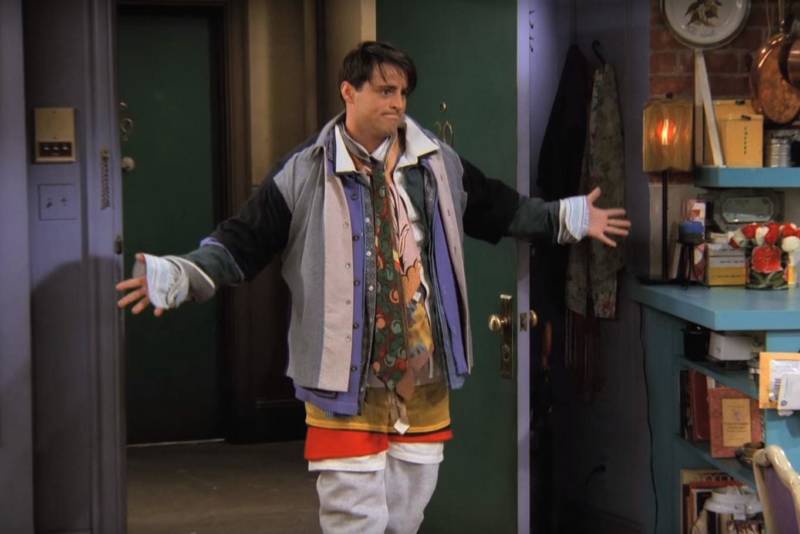In May 1997, there was a throwaway comment in an episode of Friends that somehow got itself permanently stamped into the lexicon. Phoebe rushes into Central Perk to tell the gang all about a woman who was close to her mother. "They were like BFF," she says, casually. The gang stares at her, bemused by the term. "Best friends forever," Phoebe is forced to clarify. It was neither a hilarious moment, nor one that made immediate waves, but 13 years later, the term had become so entrenched in our everyday verbiage, it was added to the Oxford English Dictionary as a noun.
It wasn't the only time Friends left a permanent mark on our language. "The friend zone," a concept that has since been embraced and distorted by men's rights activists, arrived in the first season, as Joey explained to Ross why it was too late to ask Rachel out. And "going commando," while already an obscure term, was popularized much more widely in the episode when Joey wears all of Chandler's clothes without wearing underwear:
While the speedy spread of new slang makes perfect sense in the age of social media, it's much harder to fathom how TV shows once pulled off the same feat all by themselves. Catchphrases are one thing—they're used week in, week out until they're universally understood by the public (see: "Bazinga!" "Na-nu na-nu!" "Did I do that?" etc.)—but single episode phrases that stand the test of time are something of an anomaly.
The show most frequently credited for this is Seinfeld, thanks to a writing team led by Larry David that was fundamentally committed to coming up with compact, snappy terms to describe problems and life irritants that were universally relatable. These phrases were written into scripts so smoothly, Seinfeld's audience instantly understood—and latched onto—concepts like close talkers, low talkers, sidlers and even Soup Nazis. Most remarkably of all though, it was Seinfeld that gave us a word for "regifting"—a concept so popular now, Colorado has been celebrating "National Regifting Day" every December 18th since 2008.


